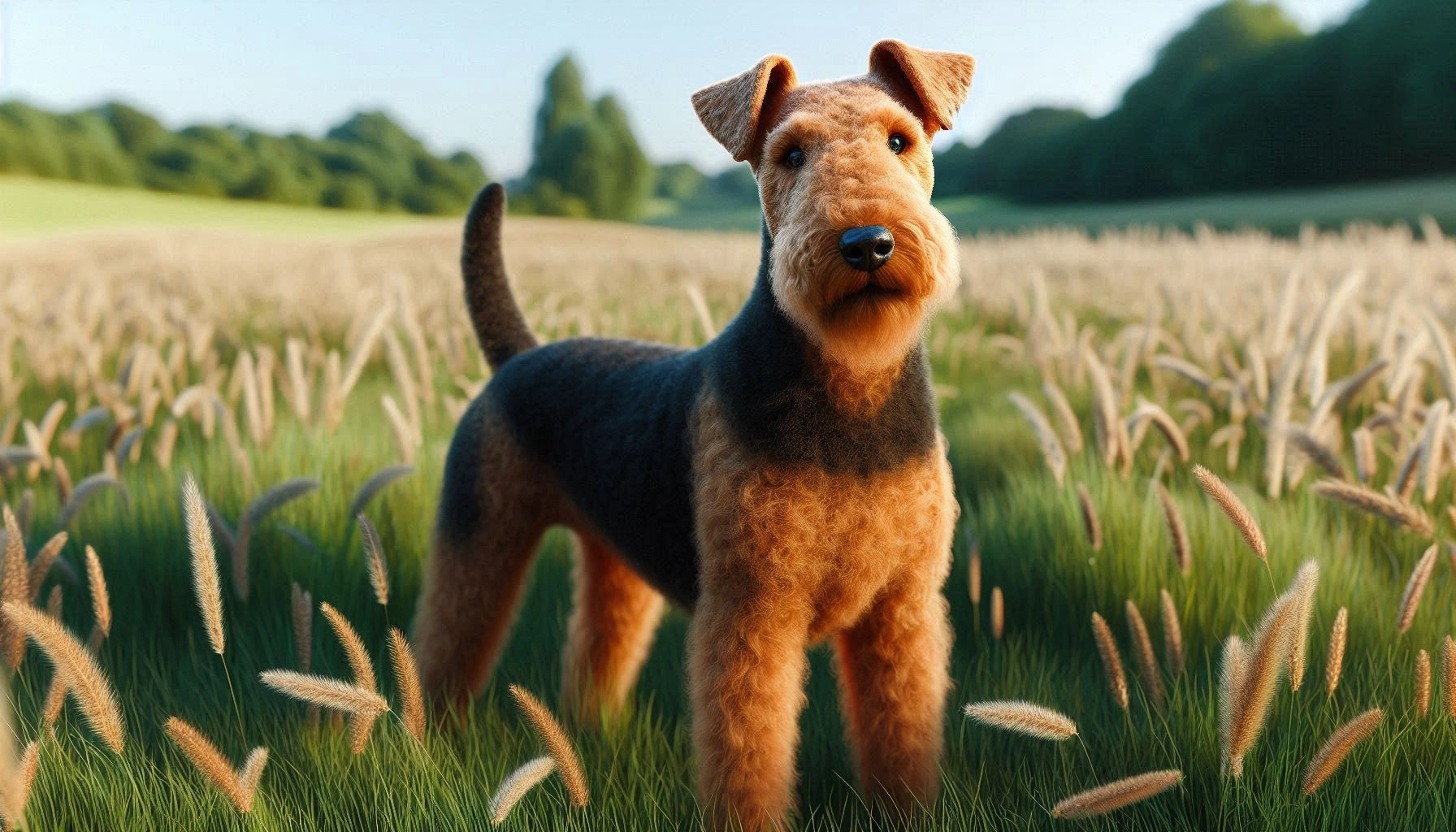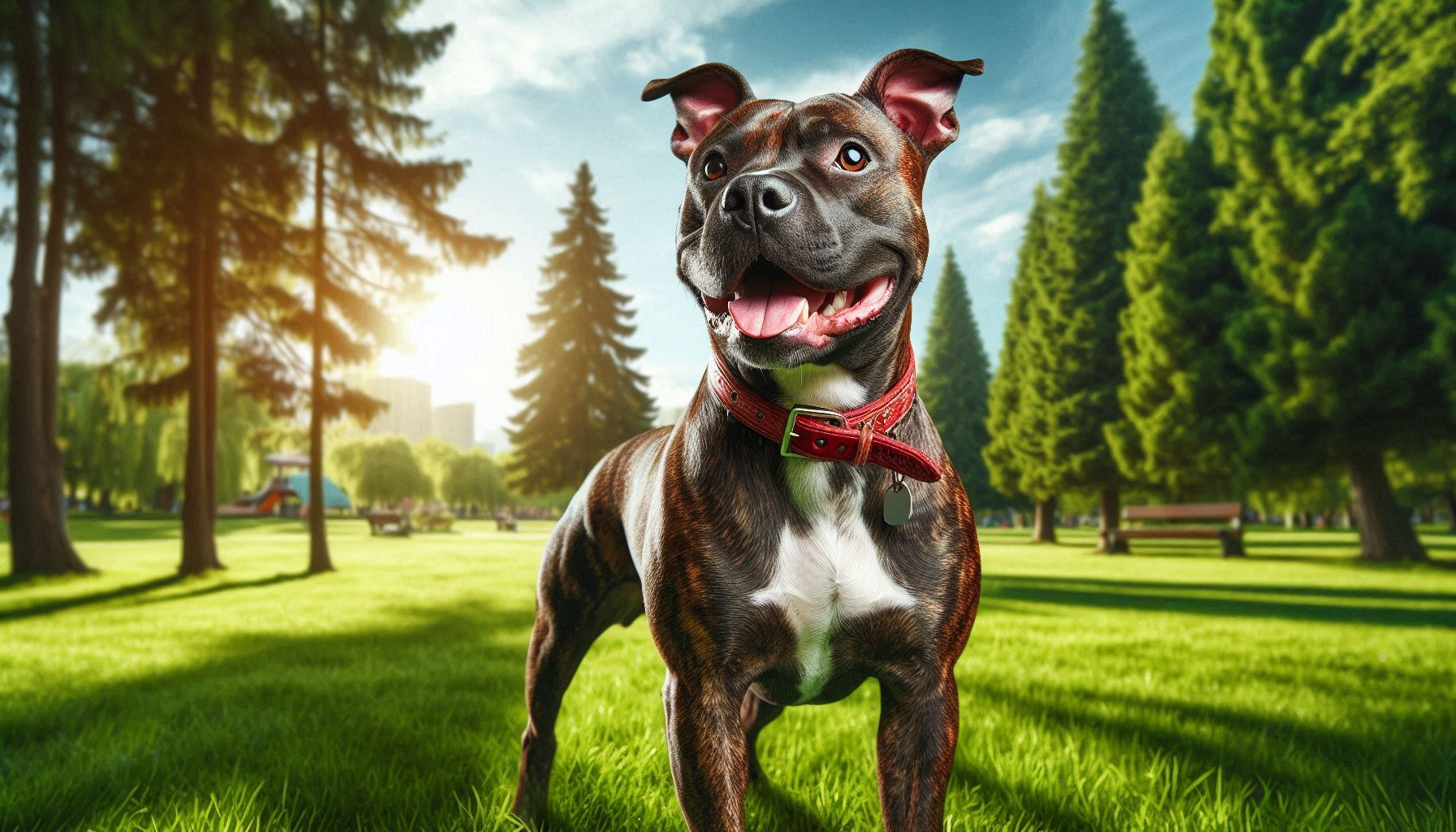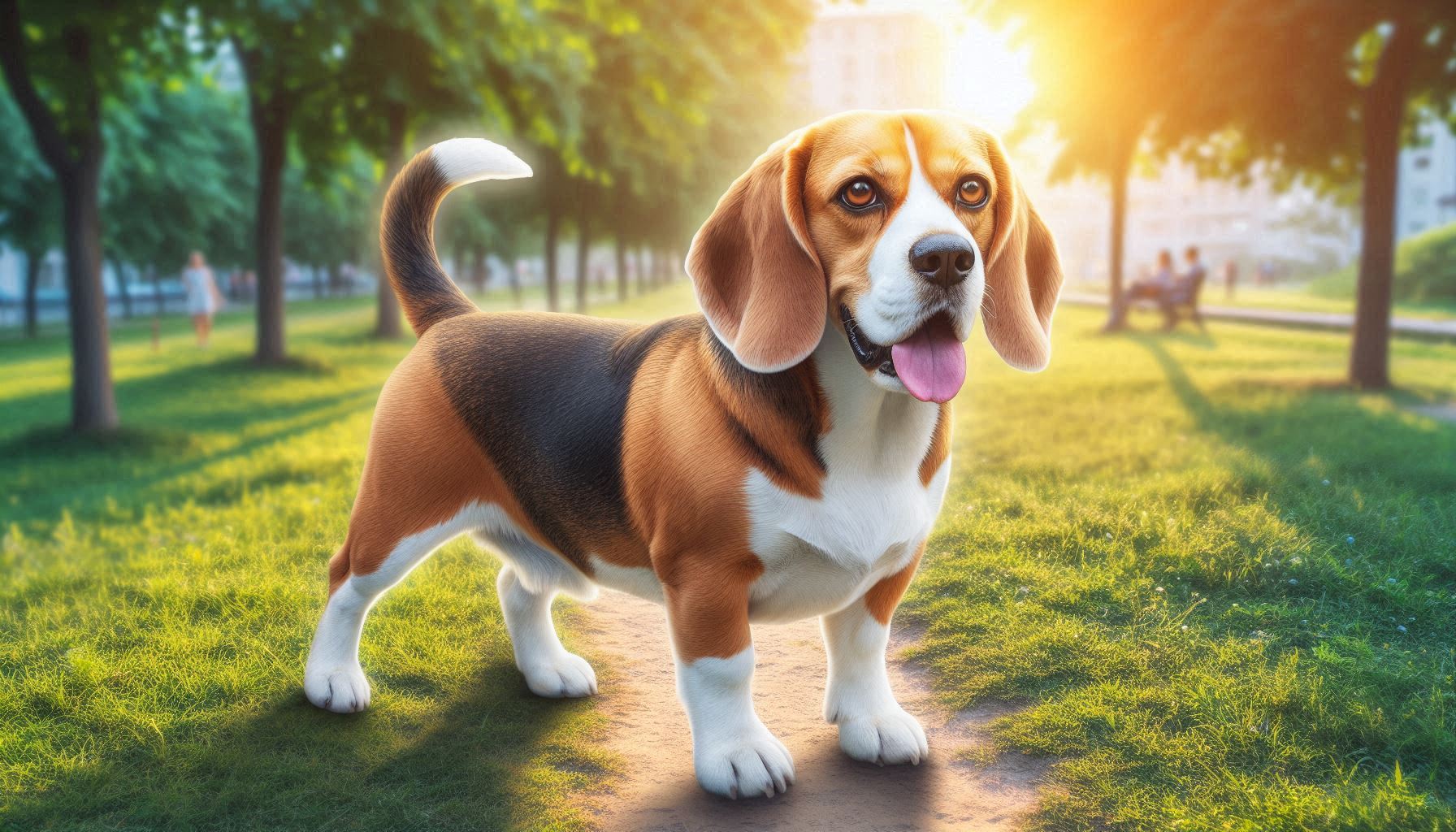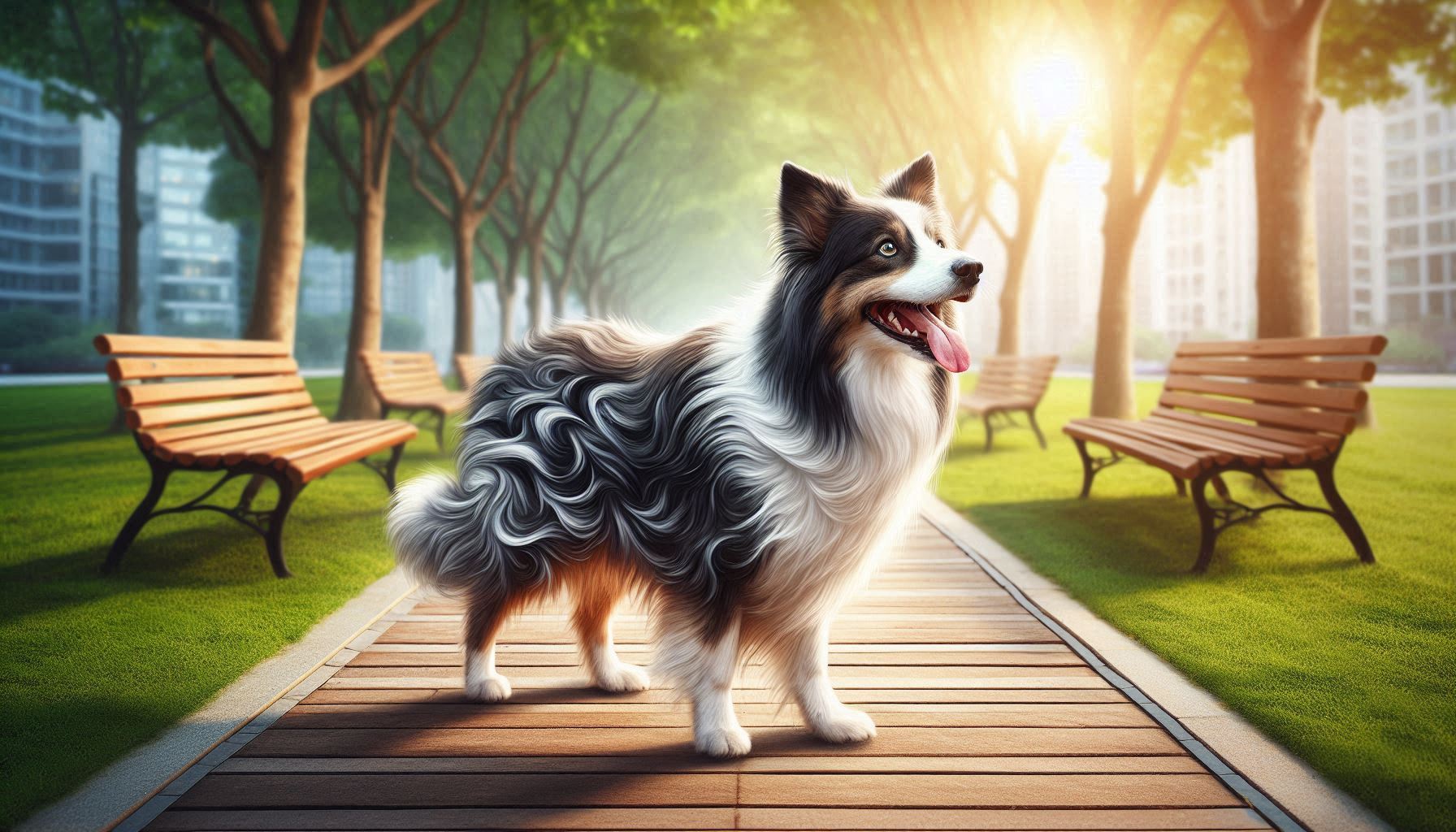Table of Contents
Whippet Dog Breed
The Whippet is a graceful and sleek breed that has captured the hearts of dog enthusiasts around the world. Known for their speed, agility, and gentle nature, Whippets make excellent companions for a variety of households. This breed is particularly popular among dog owners who appreciate a pet that combines athleticism with a calm temperament.
History and Origin
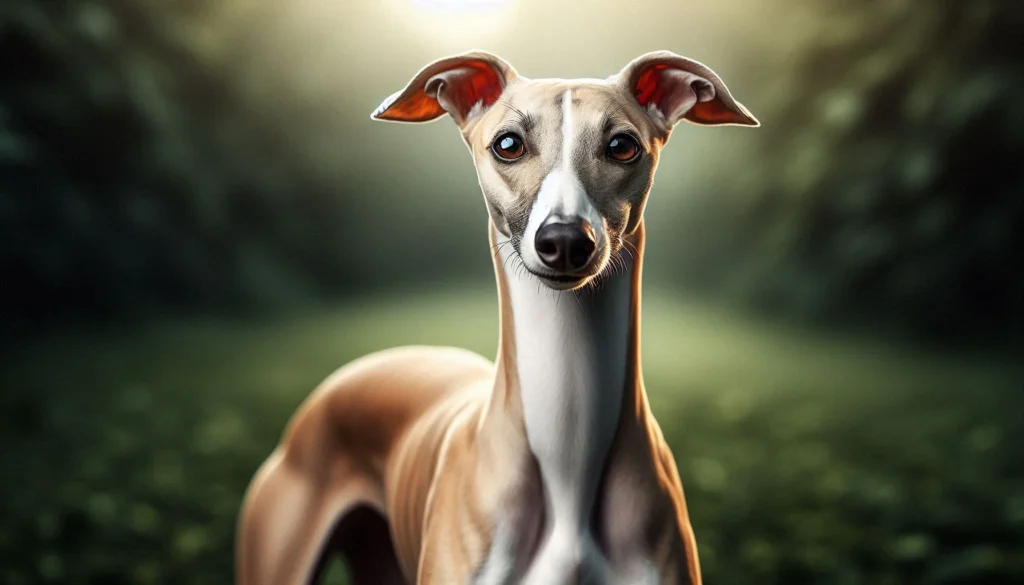
Early Beginnings
The Whippet’s history dates back to the late 18th century in England. Originally bred for racing and hunting small game, these dogs were the result of crossbreeding Greyhounds with smaller terriers and, in some cases, Italian Greyhounds. This combination created a breed that was not only fast but also agile and versatile.
Industrial Revolution
During the Industrial Revolution, the Whippet became the “poor man’s racehorse.” Coal miners and textile workers found themselves enamored with the breed, using them for racing and rabbit hunting. Whippet racing became a popular sport, with events drawing large crowds. The breed’s ability to reach speeds of up to 35 miles per hour made them a favorite in the racing circuit.
Recognition
The Whippet was officially recognized by the American Kennel Club (AKC) in 1888. Since then, the breed has gained a steady following, both as a racing dog and a family pet. Today, Whippets are celebrated for their versatility, excelling in various dog sports such as agility, lure coursing, and obedience trials.
Physical Characteristics
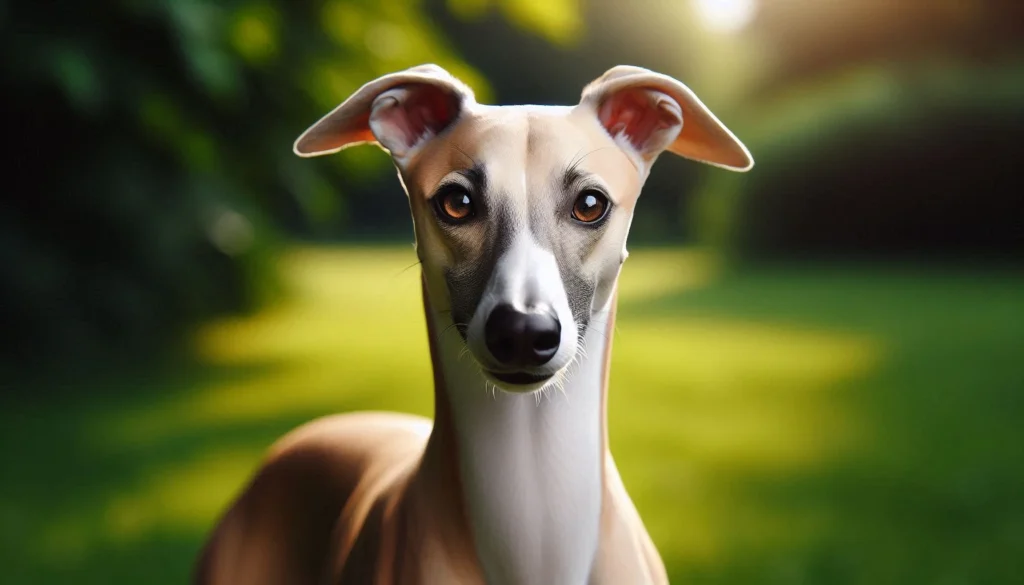
Size and Build
Whippets are medium-sized dogs, typically weighing between 25-40 pounds and standing 18-22 inches tall at the shoulder. They have a sleek, muscular build that contributes to their incredible speed and agility.
Coat and Colors
The breed has a short, smooth coat that comes in a variety of colors and patterns. Common colors include black, white, fawn, blue, red, and brindle. Some Whippets also have unique markings, such as spots or patches, adding to their visual appeal.
Distinctive Features
One of the most distinctive features of the Whippet is its head, which is long and lean with a slightly tapered muzzle. Their eyes are large and expressive, often giving them a soulful appearance. The ears are small and fine, typically folded back when at rest but erect when alert.
Temperament and Personality
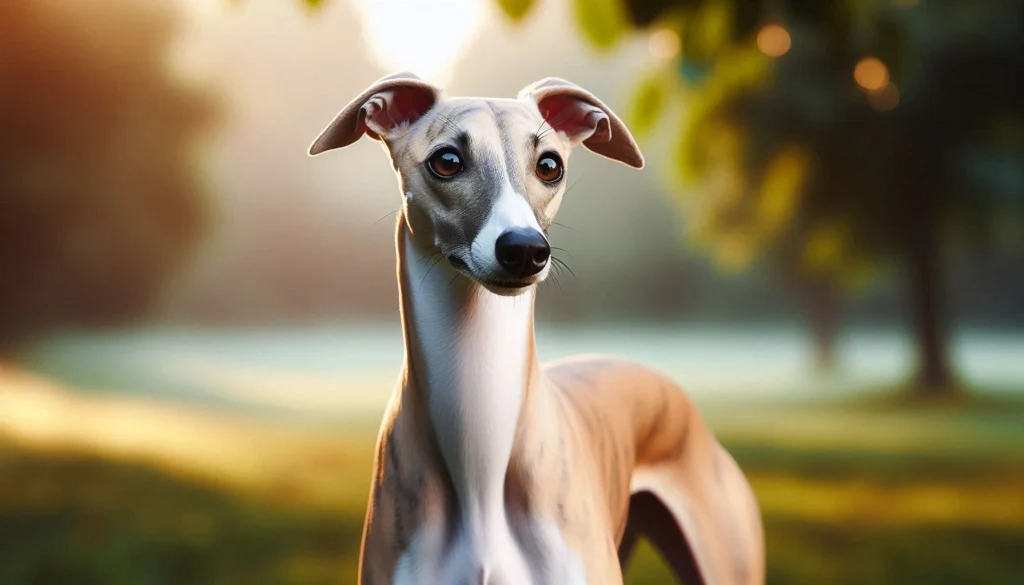
Gentle and Affectionate
Whippets are known for their gentle and affectionate nature. They form strong bonds with their families and are often described as “velcro dogs” due to their tendency to stick close to their owners. This breed is particularly good with children, displaying a patient and tolerant demeanor.
Interaction with Other Pets
While Whippets generally get along well with other dogs, their high prey drive can make them less compatible with smaller pets like cats or rabbits. Early socialization and training can help mitigate this issue, but it’s something potential owners should be aware of.
Intelligence and Trainability
Whippets are intelligent dogs, capable of learning new commands and tricks relatively quickly. However, they can also be somewhat independent, which may require a bit more patience during training sessions. Positive reinforcement methods, such as treats and praise, work best with this breed.
Health and Lifespan
Common Health Issues
Like all breeds, Whippets are prone to certain health conditions. Some of the more common issues include:
- Heart Disease: Particularly mitral valve disease.
- Hip Dysplasia: A genetic condition affecting the hip joints.
- Eye Problems: Such as progressive retinal atrophy (PRA).
Lifespan
Whippets generally have a lifespan of 12-15 years. Regular veterinary check-ups, a balanced diet, and adequate exercise can help ensure a long, healthy life for your Whippet.
Health Tips
To keep your Whippet healthy, it’s essential to:
- Provide a Nutritious Diet: High-quality dog food tailored to their specific needs.
- Regular Exercise: At least one hour of physical activity per day.
- Routine Vet Visits: Regular check-ups to catch any potential health issues early.
Care and Grooming
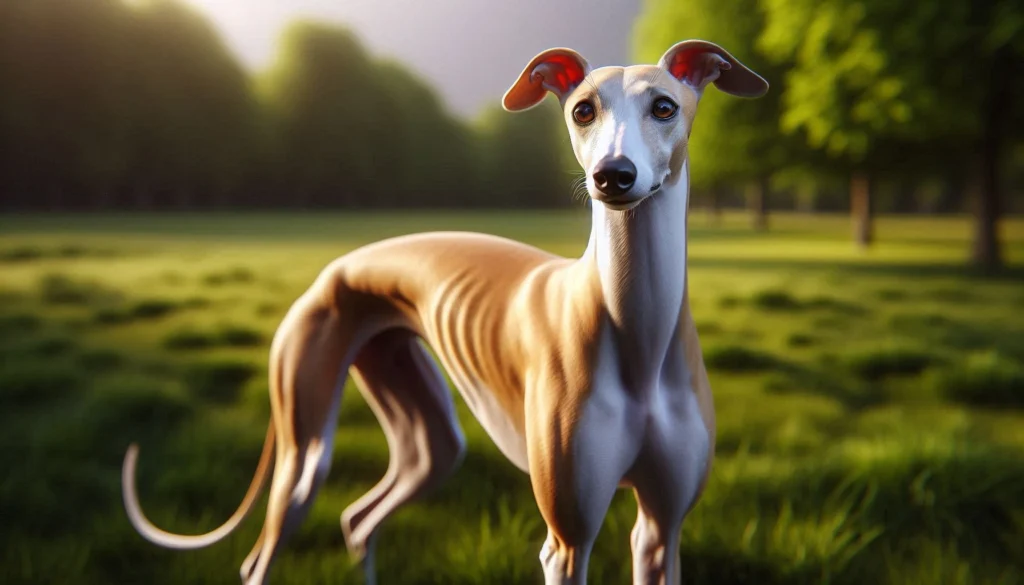
Grooming Needs
Whippets have minimal grooming needs due to their short coat. A weekly brushing is usually sufficient to keep their coat looking sleek and healthy. Regular dental care, ear cleaning, and nail trimming are also important aspects of their grooming routine.
Exercise Requirements
Whippets are active dogs that require daily exercise to stay happy and healthy. A combination of walks, playtime, and opportunities to run in a secure area will help meet their physical needs. Despite their energy, Whippets are also known for their “couch potato” tendencies and enjoy lounging around the house.
Dietary Recommendations
A balanced diet is crucial for maintaining your Whippet’s health. High-quality commercial dog food is a good option, but some owners prefer a raw or homemade diet. Consult with your veterinarian to determine the best dietary plan for your Whippet.
Training and Socialization
Early Training
Early training and socialization are essential for Whippets. Basic obedience training should start as soon as you bring your puppy home. Focus on commands like sit, stay, and come, using positive reinforcement techniques.
Socialization
Expose your Whippet to a variety of people, places, and situations to help them become well-rounded adults. Puppy classes, dog parks, and playdates with other dogs can be beneficial.
Challenges and Tips
Whippets can be sensitive and may not respond well to harsh training methods. Patience and consistency are key. Using treats and praise will yield the best results. Given their high prey drive, recall training is particularly important to prevent them from chasing after small animals.
Suitability as a Family Pet

Family Compatibility
Whippets are excellent family pets. Their gentle nature makes them good companions for children, and their moderate size means they can adapt to various living situations, from apartments to houses with yards.
Living Environment
While Whippets enjoy running and playing outdoors, they are also well-suited to indoor living. They have low tolerance for extreme temperatures, so providing a comfortable indoor environment is crucial.
Energy Levels
Whippets have bursts of energy but are generally calm and relaxed when indoors. This makes them suitable for both active and more laid-back households. Regular exercise will help keep them balanced and content.
Fun Facts and Trivia
- Speed Demons: Whippets can reach speeds of up to 35 miles per hour, making them one of the fastest dog breeds.
- Artistic Inspiration: Whippets have been featured in various works of art, including paintings by famous artists like George Stubbs.
- Quiet Companions: Unlike some breeds, Whippets are known for being relatively quiet, barking only when necessary.
Dog Breeds Similar to Whippet
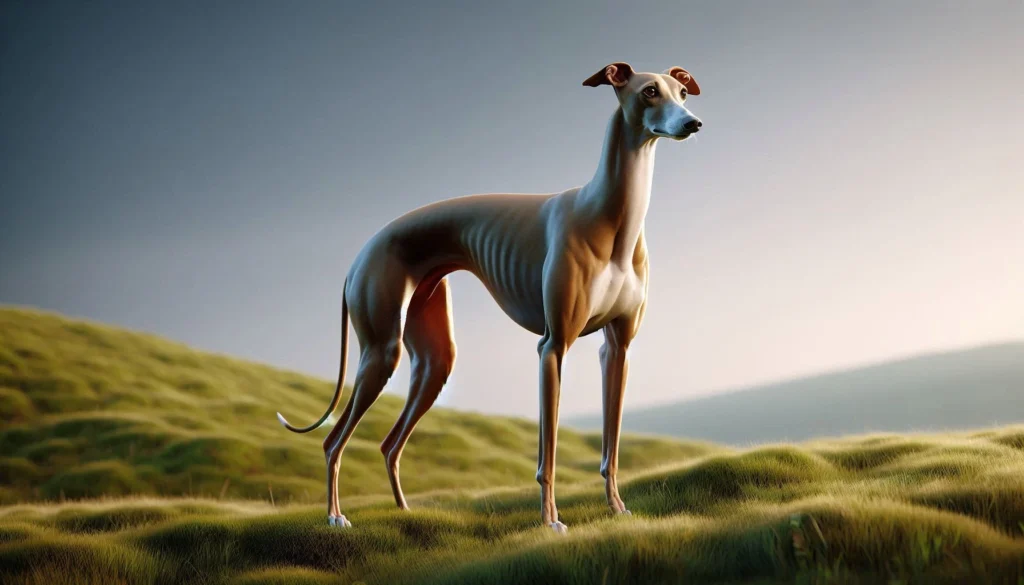
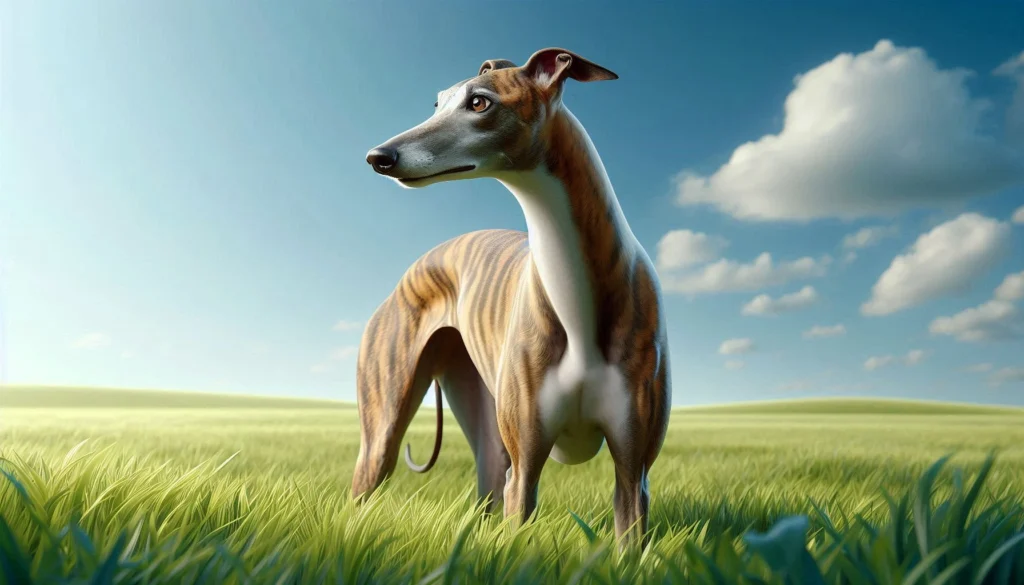
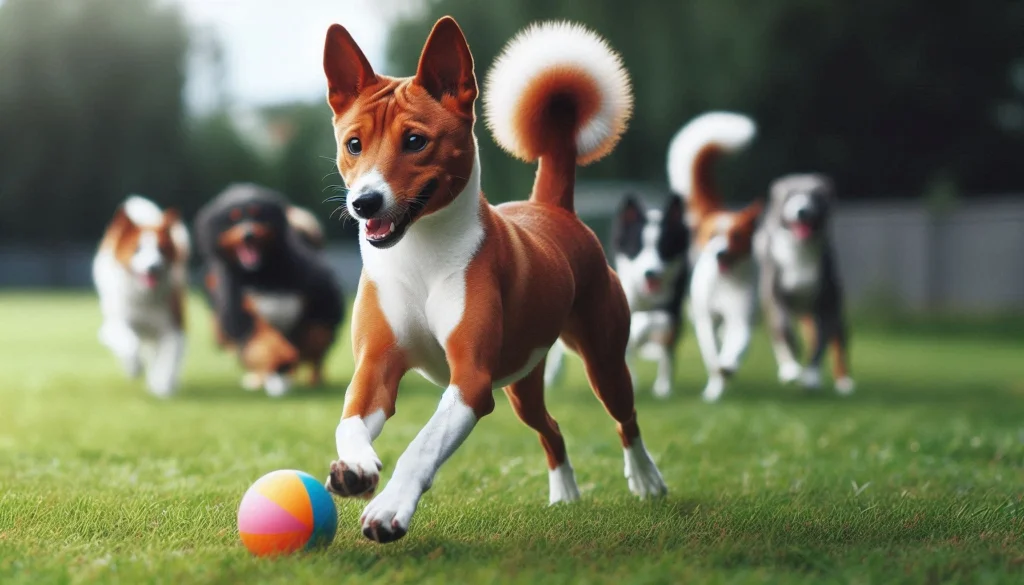
1. Italian Greyhound
Italian Greyhounds are smaller cousins of the Whippet, standing about 13-15 inches tall and weighing 7-14 pounds. They share the Whippet’s sleek build and gentle temperament, but are more delicate and require careful handling.
2. Greyhound
Greyhounds are larger than Whippets, standing 27-30 inches tall and weighing 60-70 pounds. They share similar characteristics such as speed and a gentle nature. Greyhounds are also known for their calm demeanor and make excellent pets.
3. Basenji
Basenjis are similar in size to Whippets, standing 16-17 inches tall and weighing 22-24 pounds. Known as the “barkless dog,” Basenjis share the Whippet’s sleek build and independent nature. They are intelligent and curious, making them interesting companions.
Conclusion
Whippets are a unique and versatile breed that offers the best of both worlds: athleticism and a calm, affectionate temperament. Whether you’re looking for a running partner or a cuddly companion, the Whippet is a breed worth considering. With proper care, training, and love, a Whippet can be a fantastic addition to any household.
FAQ
Is the Whippet a dangerous dog?
No, Whippets are not considered dangerous dogs. They are gentle, friendly, and typically good with children and other pets. However, their high prey drive means they should be supervised around smaller animals.
Is the Whippet the best guard dog to protect you or your family?
Whippets are not known for their guarding abilities. They are more likely to greet strangers with curiosity rather than aggression. If you’re looking for a guard dog, breeds like the German Shepherd or Rottweiler might be more suitable.
